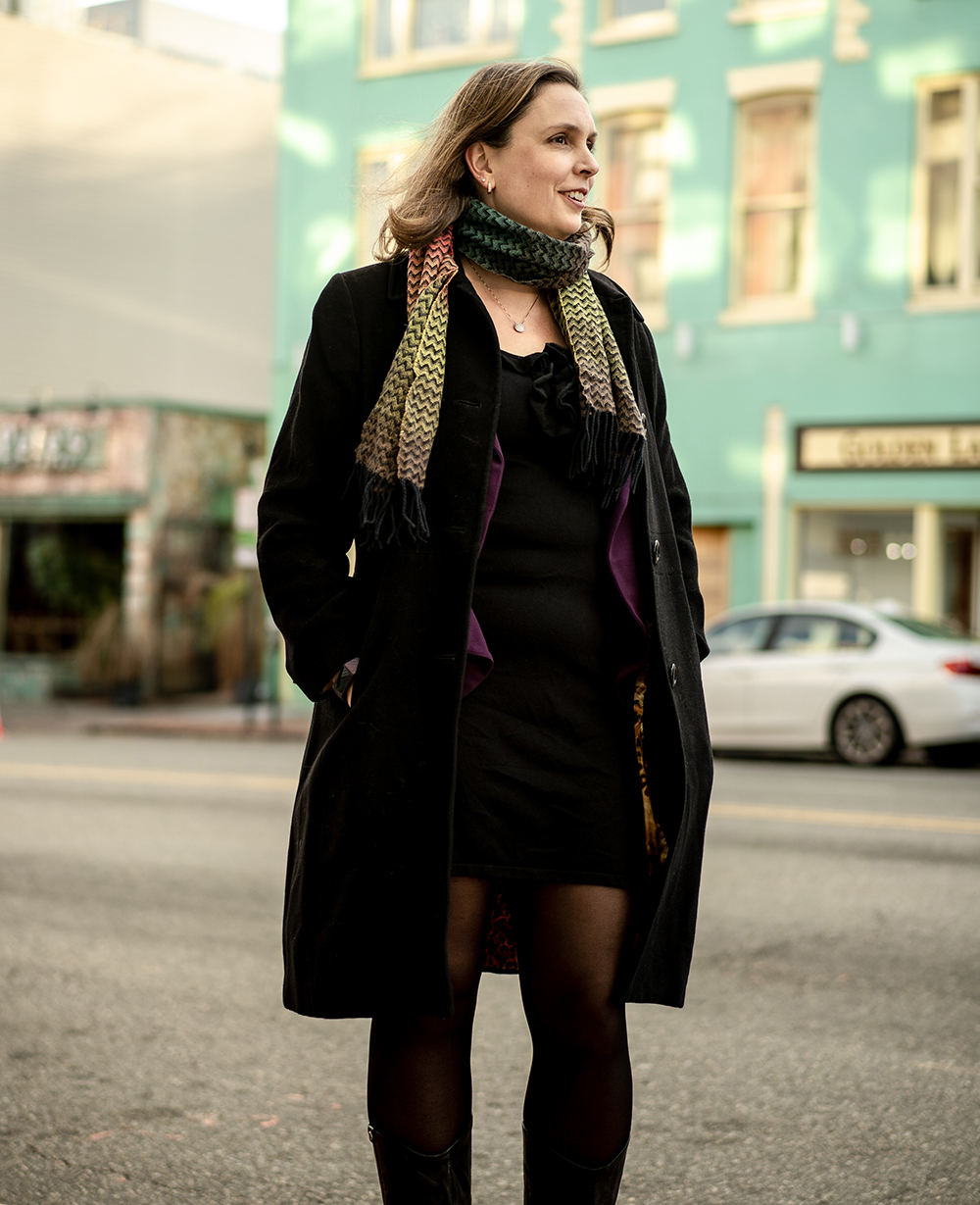The Teachers’ Teacher
Kathryn ‘Kate’ Spence, Associate Professor of Education, Director of QUEST/B.A.–M.A.T

Kate Spence (Photo: Bill Cardoni)
By Kenna Caprio
“We teach people first and content second,” says Kathryn ‘Kate’ Spence, associate professor of education and director of the QUEST/B.A.–M.A.T. combined-degree program.
Spence has devoted her professional life to teaching future generations of educators, and to making social justice and educational equity cornerstones of curriculum and everyday practice in the classroom.
As an English teacher, she worked in middle-school and high-school positions in South Korea; Vermont; the Baltimore, Md., suburbs and the Bronx, N.Y. But Spence quickly realized that she could make a bigger, broader impact by educating future teachers.
“Education is complicated,” says Spence. “My goal is often to trouble my students’ existing belief systems just enough to make them open to considering other possibilities.”
This philosophy is informed by her social-justice research and expertise.
“It’s not just a recruitment issue. There have been systemic forces that have pushed out teachers of color in really purposeful ways,” says Spence. “We need to be really thoughtful about how we’re supporting teaching students through that. Social justice and equity commitment need to be explicit in the FDU curriculum.”
To that end, Spence is collaborating with Khyati Joshi, professor of education; Randall Westbrook, lecturer of education; Ella Rideau, an adjunct faculty member; and Nicole Hansen, assistant professor of learning disabilities, on curriculum changes.
“I’m excited about the program revision we’re doing now with an organization called Teaching Tolerance [a Southern Poverty Law Center project]. The working group also has constituents from both campuses — alumni, faculty and students,” says Spence. “At FDU and elsewhere we need to be thinking about what it means to serve all of our students.”
Broadly, in New Jersey, “because the K–12 system is set up so that each town can have its own district, the legacy of redlining [a discriminatory practice related to mortgage lenders isolating Black populations, increasing and reinforcing the racial homeownership gap] has contributed to who lives in which towns. As a result, there are not a lot of racially diverse districts,” Spence says. Funding gaps, disciplinary practices and special education recommendations also contribute to inequity.
Long-standing issues within the education system are always on her mind as Spence teaches her future teachers about classroom leadership, lesson plans, community culture, legal and ethical issues, unit plans and learning.
Outside of the classroom, Spence is on the newly formed Diversity and Inclusion Advisory Council. The council, established by President Christopher Capuano following the murder of George Floyd, subsequent Black Lives Matter protests and virtual FDU forums on race, is a recommending body, and members are optimistic about their influence on University policy, culture and curriculum. Members recently proposed that the council become a permanent body and that its work and recommendations be integrated into the upcoming strategic plan.
For Spence, being on the council, in addition to being in the classroom and being a curriculum creator, is another opportunity to listen to and learn from faculty and students of color, and to use her voice in concert with them to advocate for a more equitable and just society.
Academic Advice
“Visit faculty members during office hours. A lot of times students don’t realize just how supportive faculty can be,” says Spence.
Shining Success
“What I want for my kids and for myself is to have left the world a better place. I want to show kindness and to have contributed to a more just and equitable society.”
Adventure Ahead
Travel goals: Visit all the national parks with her kids.
Current Research
“My dissertation is on teacher attrition and retention; however, my current research
is more closely aligned to equity and diversity. This research is focused on how professional development can support the development and implementation of social justice and equity practices at middle and high schools.”